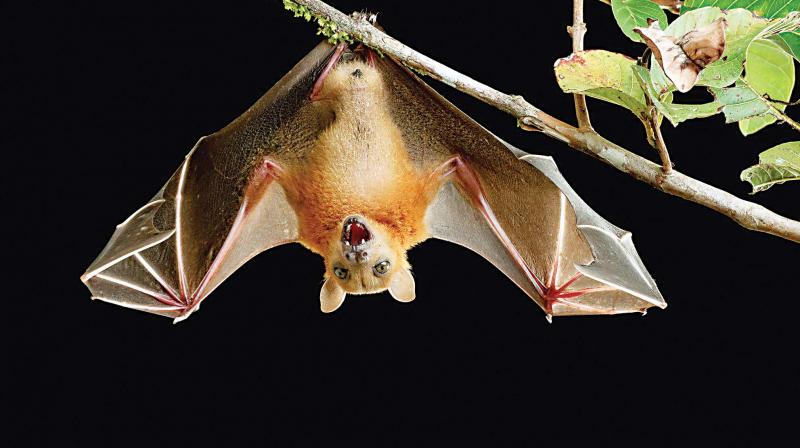3 Nipah suspects put Karnataka on alert
Two suspected cases reported from Mangaluru, one from Gadag, Hospitals set up separate wards.

Bengaluru: After two suspected cases of Nipah virus were found in Mangaluru, there has been one more such case in Gadag, and the state is on high alert.
Dr Suresh Shastri, I/C Joint Director (IEC), Directorate of Health and Family Welfare Services said, "There was one suspect found on Thursday in Gadag, but we are yet to confirm it. The patient was hospitalised and the blood samples have been sent to Pune for the test."
The Karnataka Health and Family Welfare department also directed all the district hospitals to be on alert and coordinate among each other. The Department Director Dr P.L Nataraj said, "The reports are awaited and we have sent out clear instructions to all the district hospitals to be alert."
Many hospitals in the city have set up separate wards as a precautionary measure. K.C. General Hospital, Rajiv Gandhi Institute for Chest Diseases and Victoria Hospital have made arrangement to isolate patients if there is a need.
Sources at K.C. General Hospital said that a separate ward with three-four beds have been set up along with the doctors and nurses assigned for the same.
BBMP has also issued various instructions. If a Nipah virus suspect is found in any government or private hospitals within BBMP limits then they will have to inform the Health Department immediately; call 104 for help; inform the health officer. They distributed hands bills as part of creating awareness.
Asha workers are also being trained by the health officers to create awareness among public about Nipah virus.
District health department of Bengaluru Urban Zilla Panchayat has also spelt out measures to be taken to prevent the disease. Dr Suryanarayana Sharma, Consultant Neuro Physician and HOD, Department of Neurosciences, BGS Gleneagles Global Hospitals said, "It is critical to use standard barrier nursing techniques with proper isolation of the patients. Timely laboratory confirmation and aggressive epidemiologic tracing of contacts with patient quarantine and isolation can contain spread of virus. This is important because there is no effective specific treatment for the infection."
As it is an emerging disease, there is no passive immunity for this infection. Hence, it can cause severe infection with mortality as high as 75 per cent.
Dr Sharma also explained about the infection and the range of symptoms.
Infection starts usually 5-14 days after exposure and the symptom persists for 10-12 days. They range from asymptomatic infection to sudden onset of high fever, headache and rapid progression to drowsiness and coma. Vomiting, breathlessness, giddiness, seizures and focal neurological deficits are also seen. "If you experience a combination of any of these symptoms, visit a physician immediately," he added.

